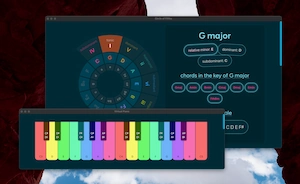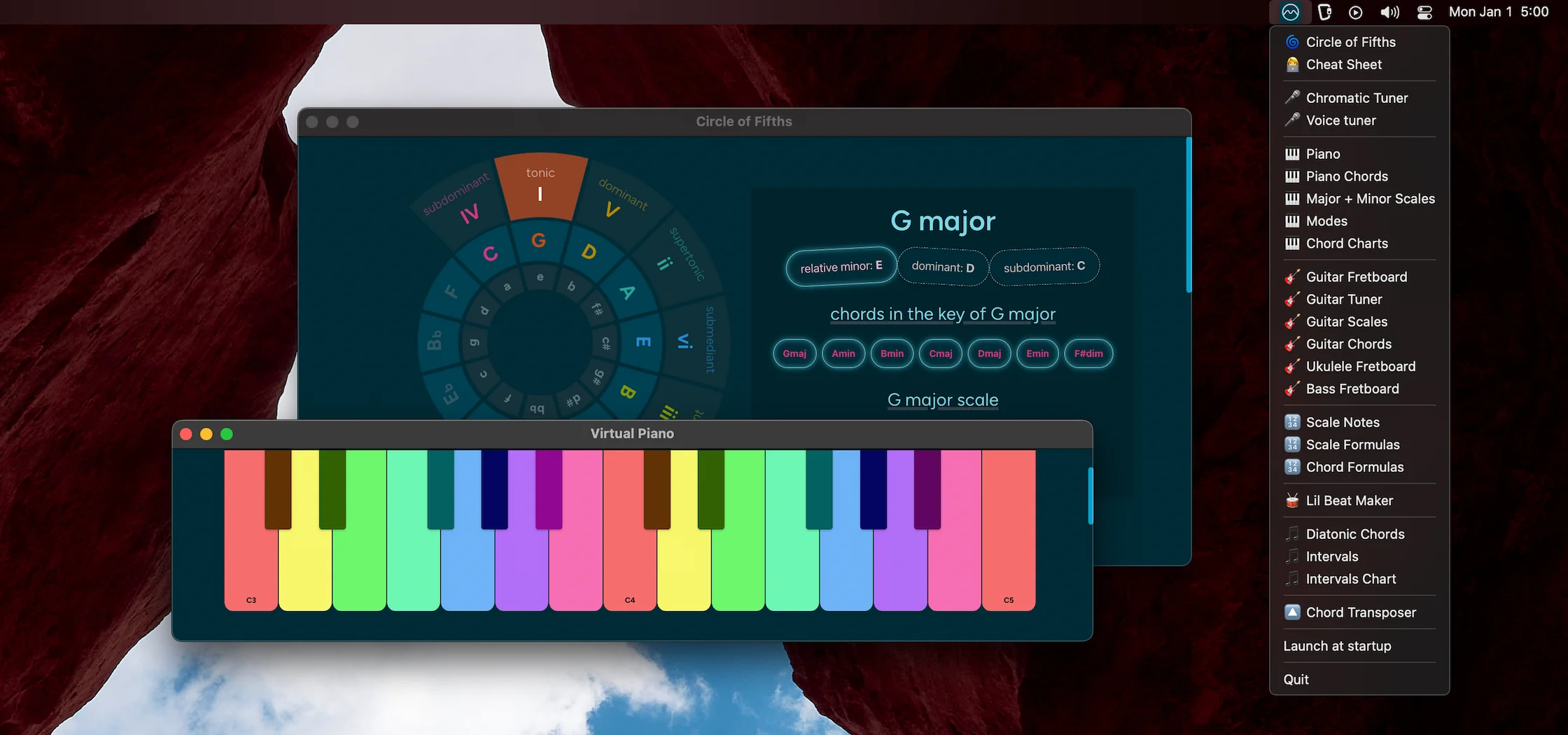Chromatic Scale: Visualize Intervals & Triads
🎹 In music, the chromatic scale is a scale
that includes all 12 notes:
C-C♯-D-D♯-E-F-F♯-G-G♯-A-A♯-B-C
Or the enharmonic equivalent:
C-D♭-D-E♭-E-F-G♭-G-A♭-A-B♭-B-C
The chromatic scale, visualized as a circle or a cycle, can be a very useful
tool to see the intervals betweens notes and see how triads are formed. On
this page you can visualize and interact with the chromatic scale
interactively in such a way.
The circle of fifths is another very useful
tool to visualize the 12 notes, but the circle of fifths organizes notes in
order of fifths instead of the chromatic scale, which organizes the 12 notes
so that each successive note is a half step (aka a semitone) distance apart.
This is a chord
Triad Shapes from the Chromatic Scale
When visualized on the chromatic scale, triads will form distinctive triangular shapes. Below you can see what these shapes look like:
Major Triads
Major triads are formed with a root, a major third and a perfect fifth.
Minor Triads
Minor triads are formed with a root, a minor third and a perfect fifth.
Diminished Triads
Diminished triads are formed with a root, a minor third and a diminished fifth.
Augmented Triads
Augmented triads are formed with a root, a major third and an augmented fifth.



